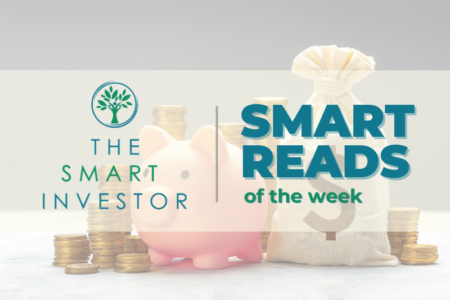The Straits Times Index (SGX: STI) is hovering near record highs, and many blue-chip REITs are trading at compressed yields.
In such an environment, finding REITs that offer attractive payouts becomes harder.
Thankfully, not all REITs have seen their yields fall; some still offer investors attractive yields above 6%.
We examine five REITs that fit the bill, delivering high yields despite the market rally, and what this means for investors.
Elite UK REIT (SGX: MXNU)
As the only Singapore-listed UK REIT, Elite UK REIT focuses predominantly on properties tenanted by the UK government and public-sector organizations.
The REIT’s distributable income increased 5.8% year-on-year (YoY) to £9.7 million, while distribution per unit (DPU) rose 10% YoY to £0.0154 in the first half of 2025 (1H2025).
Elite UK REIT’s net gearing ratio improved YoY by 1.8 percentage points in 1H2025 to 40.7%.
Borrowing costs also declined to 4.8% as of 30 June 2025, thanks to refinancing and debt optimisation initiatives executed in FY2024.
Elite UK REIT’s properties have a 95% occupancy rate, with over 99% of contracted rental income backed by the UK Government, ensuring resilient cash flows.
While it has a shorter weighted average lease expiry (WALE) of 2.9 years for the existing portfolio, the REIT’s new acquisition portfolio enjoys a longer WALE of 7.2 years.
Trading at £0.36 per share, the REIT is currently at its 52-week high.
The REIT’s 1H2025 DPU of £0.0154 per unit, a 10% YoY increase, with full-year 2024 DPU totalling £0.0287.
Despite the market high, Elite UK REIT’s trailing annual dividend yield remains at a high of 8.4%.
However, investors should be aware of currency risks as the REIT trades in pound sterling, exposing Singapore-based investors to GBP/SGD exchange rate fluctuations..
Changes in the UK economic climate, including interest rate movements, potential recession risks, and evolving government policies, can also impact property valuations and rental demand.
United Hampshire US REIT (SGX: ODBU)
United Hampshire US REIT (UHREIT) invests primarily in grocery-anchored and necessity-based retail properties, and modern, climate-controlled self-storage facilities in the United States.
As at 30 June 2025, the committed occupancy for UHREIT’s Grocery & Necessity Properties remained high at 97.2% with a long WALE of 7.6 years.
Occupancy rates for Carteret and Millburn Self-Storage Properties are also at healthy levels of 94.6% and 96.0%, respectively.
The REIT’s 1H2025 distributable income increased 2.4% YoY to US$13.0 million, along with a 4% YoY increase in DPU.
In 1H2025, UHREIT paid US$0.0209 per unit, a 4.0% increase from US$0.0201 in 1H2024. Its trailing annual dividend yield is 8.3%.
Holding a well-spread debt maturity profile, UHREIT has no refinancing requirement until November 2026.
UHREIT maintains a moderate net aggregate leverage of 36.1%, with 78.5% of its total borrowings on fixed rates or hedged against interest rate fluctuations.
That said, as a REIT, UHREIT relies on debt to finance acquisitions and operations, making it sensitive to interest rate movements.
However, UHREIT benefits from a resilient tenant mix, with the majority being necessity-based retail operations such as grocery stores, which provide stable occupancy and rental income.
AIMS APAC REIT (SGX: O5RU)
AIMS APAC REIT invests in a diversified portfolio of industrial, logistics and business park real estate, located mainly in Singapore and Australia.
The REIT’s portfolio occupancy was reported at 93.7%, with a WALE of 4.4 years.
With a low gearing ratio of 28.9%, AIMS APAC REIT maintains strong financial flexibility with undrawn committed facilities, and cash and bank balances of approximately S$312.1 million.
Strategic acquisitions, portfolio rejuvenation, and divestments also contribute to the REIT’s success.
Recently, AIMS APAC REIT executed a successful divestment of 3 Toh Tuck Link at a 32.5% premium over valuation, with proceeds used to repay debt and fund new growth opportunities.
The REIT reported a 1QFY2026 DPU of S$0.0228 per unit, representing a 0.4% YoY increase, maintaining a trailing annual dividend yield of approximately 6.9%.
AIMS APAC REIT’s diversified portfolio is well supported by 190 tenants across multiple trade sectors.
With 82.3% gross rental income coming from tenants in defensive industries, the REIT enjoys stable and resilient income.
While there are worries about geopolitical headwinds from US tariffs and rising US debt, AIMS APAC REIT’s focus on the Singapore and Australia markets positions the REIT favourably compared to other markets.
Digital Core REIT (SGX: DCRU)
Digital Core REIT is a leading pure-play data centre REIT with data centres across the US and Canada, serving blue-chip tenants.
Reporting an 83.9% YoY increase in revenue for 9M2025 to US$132.4 million, Digital Core REIT also saw YoY net property income rising 49.6% to US$67.7 million.
The REIT’s portfolio occupancy is currently at 98%, excluding a property in Virginia undergoing refurbishment, with a WALE of 4.7 years.
With a 6.9% dividend yield, the REIT has paid US$0.018 per unit dividend for 1H2025.
Reporting an aggregate leverage of 38.5%, the REIT records 86% fixed-rate debt and no debt maturities until December 2027.
Digital Core REIT has a stable and resilient portfolio with more than 120 customers, with its top customers consisting of leading global cloud providers and IT solutions providers.
The REIT has confidence in its future growth due to artificial intelligence and cloud computing, which are expected to contribute to continued growth in digital spending.
However, factors such as tenant concentration, competition in the data centre market, and tech-cycle exposure are risks that can affect Digital Core REIT’s income.
ESR-REIT (SGX: 9A4U)
ESR-REIT holds interests in a diversified portfolio of logistics and industrial properties across the Asia-Pacific, with total assets of approximately S$5.9 billion.
In 1H2025, ESR-REIT reported gross revenue of S$222.9 million, a 23.2% increase from S$180.9 million in 1H2024.
ESR-REIT also delivered positive rental reversions of 9.7% in 1H2025, with its portfolio occupancy standing at 91.2%, and WALE at 4.1 years.
With its trailing annual dividend yield at 7.5%, the total DPU for 1H2025 stood at S$0.1124, a 0.2% increase from S$0.1122 in 1H2024.
However, ESR-REIT has a moderately high gearing of 42.6%, despite its ongoing efforts to bring it down to below 40%.
The REIT’s interest coverage ratio remains healthy at 2.4x, well above the Monetary Authority of Singapore’s (MAS) regulatory minimum of 1.5x, reflecting ESR-REIT’s solid debt servicing capacity.
With most assets in Singapore, uncertainties such as tariffs from the U.S. and sector-specific tariffs targeting the pharmaceutical industry can have a pronounced impact on Singapore’s export-reliant economy, in turn affecting ESR-REIT.
What This Means for Investors
Even with the STI at record highs and many REIT yields becoming compressed, these five REITs still offer yields above 6%.
However, a high yield alone doesn’t tell the whole story.
Investors should also assess the quality of a REIT’s assets, tenant profile, balance sheet strength, and geographical risks.
Higher yields often reflect higher risks – whether from sector cyclicality, currency exposure, or interest rate sensitivity.
Get Smart: Yield Isn’t Everything
These five REITs show that attractive income opportunities above 6% remain available, even at current market levels.
However, the higher yields come with trade-offs.
Investors must look beyond the headline number, focusing on balance sheet strength, gearing levels, and tenant quality.
The key is balancing yield with sustainability.
A stable yield from a high-quality REIT beats a high yield that may not last.
If you’re nervous, confused, or worried about buying your first stock, then our latest beginner’s guide to investing can help. It’s easy to read yet packed with valuable insights. Download it for free today, and buy your first stock in the next few hours. Click here to get started.
Follow us on Facebook, Instagram and Telegram for the latest investing news and analyses!
Disclosure: Wenting does not own shares in any of the companies mentioned.





